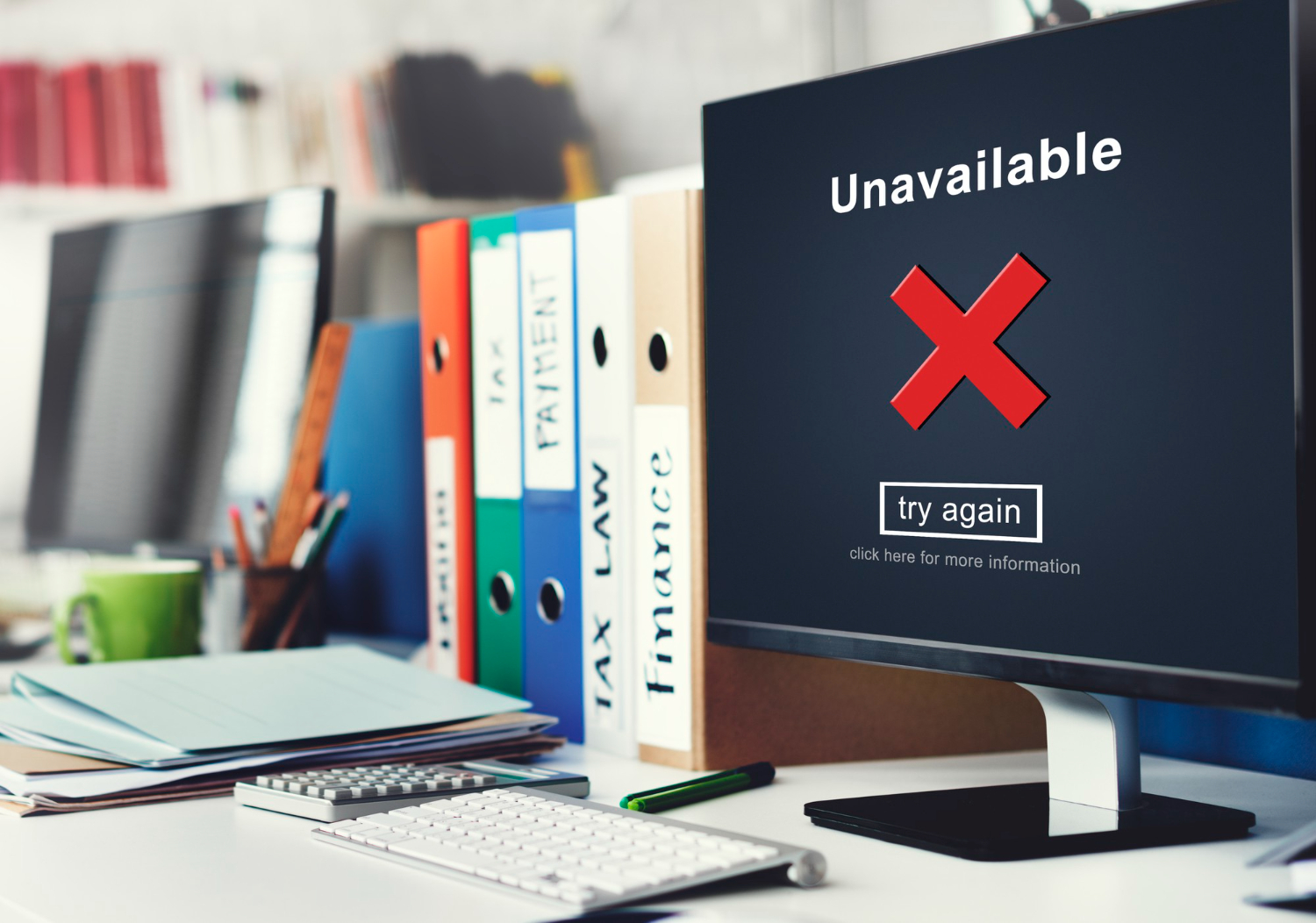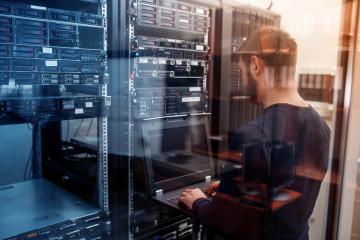
Keeping your IT equipment up-to-date is crucial for your business. Old and unreliable gear can slow down your team and reduce productivity. If you're constantly dealing with computer crashes or waiting for applications to load, it may be time to upgrade. These delays not only frustrate your staff but also impact your business operations.
Your Equipment Is Slow and Unreliable
Frequent Crashes and Lagging Performance
If your IT equipment is constantly crashing or lagging, it’s a major sign that you need new gear. Frequent crashes can halt your work and waste valuable time. Lagging performance, where everything seems to take forever to load or respond, can be equally frustrating. This isn’t just an annoyance; it can significantly slow down your team's productivity. Old or overused hardware often can’t keep up with the demands of modern software and applications.
Investing in new equipment will bring noticeable speed improvements. Your team will appreciate the smoother performance and faster load times. It’s a simple way to boost productivity and morale around the office.
Increased Downtime Due to Repairs
Old equipment tends to break down more often, leading to increased downtime. When your computers or servers are out of commission, work comes to a standstill. This downtime not only frustrates your team but also affects your bottom line. Frequent repairs can also add up in terms of cost. Sometimes, the cost of keeping old equipment running exceeds the cost of simply replacing it with new, reliable gear.
Think about how often you have to call in IT support to fix recurring issues. If it’s becoming a regular thing, it’s time to consider an upgrade. Using new, reliable equipment means less downtime and fewer interruptions to your workday.
Compatibility Issues with New Software
New Software Won't Install or Run Properly
Technology is constantly evolving. Software developers frequently release updates and new versions that demand more from your hardware. If you’re finding that new software either won’t install or runs poorly, your old equipment might be the problem. New applications often require more memory, better graphics capabilities, and faster processors than your old machines can provide.
Being unable to use the latest software can hinder your ability to take advantage of new features and improvements. This can put your company at a disadvantage, especially if your competitors are using the latest tools to streamline their operations.
Old Hardware Can't Support New Features
Sometimes, even if you can install new software, your old hardware might not be able to support all its new features. You may find that certain functionalities are sluggish or simply don't work. This can be particularly limiting if you’re trying to use specialized software that requires advanced capabilities.
Replacing outdated equipment ensures that you can fully utilize new software. This means better performance, access to new features, and more efficient workflows. Your team will be able to work more effectively with the latest tools at their disposal.
Security Concerns
Outdated Security Features
Security is a major concern for any business. If your IT equipment is old, it may lack crucial security features that protect against modern threats. Older systems often miss out on the latest security updates and patches, making them easy targets for cyber-attacks. Without updated defenses, your sensitive company data is at a much higher risk of being stolen or compromised.
Using up-to-date equipment ensures you have the latest security technologies in place. This means better protection for your business data, customer information, and overall network. Staying current with new hardware and software helps keep your company safe.
Frequent Virus or Malware Infections
Are you constantly dealing with virus or malware infections? This is a sign that your equipment's security is lagging behind. New viruses and malware emerge all the time, and old equipment often can’t keep up with these new threats. Frequent infections can slow down your systems, disrupt work, and potentially harm your data.
Investing in new IT equipment can greatly reduce these risks. Newer systems come with improved security features that are designed to fend off the latest threats. By upgrading, you help ensure that your network is better protected against malicious attacks.
High Repair Costs and Maintenance
Frequent Need for Costly Repairs
If you’re always calling in someone to fix your IT equipment, it’s time to consider a change. Constant repairs can become expensive quickly, and they don't address the underlying issue: your equipment is too old. Paying for frequent fixes doesn’t make sense when those costs could be put toward new, reliable equipment.
Consider how much you’re spending on repairs. If it’s a lot, it’s probably more cost-effective to invest in new gear. New equipment can reduce the need for repairs, saving you money and keeping your operations running smoothly.
Rising Maintenance Expenses Outweigh Benefits
As your equipment gets older, maintenance costs tend to go up. Parts wear out, and the technology becomes outdated. The rising expenses associated with upkeep can outweigh any benefits of keeping the old equipment. It can also be challenging to find replacement parts for older systems, further driving up costs.
By switching to new equipment, you can lower your maintenance expenses. Newer hardware tends to be more reliable and requires less ongoing maintenance. This means fewer headaches for you and a better investment for your business.
Conclusion
It's clear that keeping old IT equipment can be more trouble than it's worth. Frequent crashes, lagging performance, and constant repairs eat into your productivity and budget. Compatibility issues with new software can prevent you from using the tools you need to stay competitive. Old equipment can also expose you to security risks, making your data vulnerable.
Upgrading your IT equipment isn't just about having the latest gadgets. It's about ensuring your business runs smoothly, efficiently, and securely. Newer equipment provides better performance, supports the latest software, and offers improved security features. While it might seem like a big expense upfront, the benefits far outweigh the costs in the long run.
If you're ready to explore your options for new IT equipment and want to ensure you're making the best choices for your business, contact The Scarlett Group. We specialize in managed IT services that keep your business running smoothly. Give us a call today, and let us help you upgrade your IT infrastructure!



